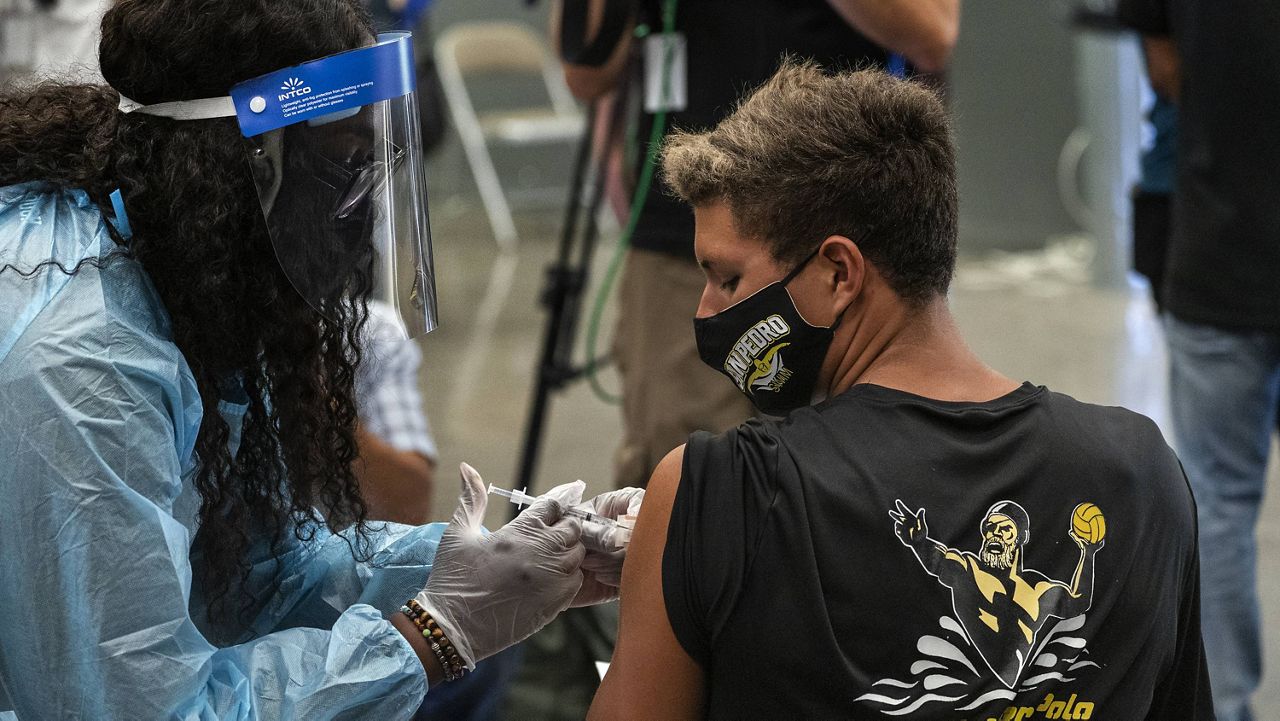As Americans shed their masks, return to office buildings and gather in crowds again, some might believe COVID-19 case numbers will only decline from here on out.
But the situation in the United Kingdom suggests that’s not guaranteed.
What You Need To Know
- The situation in the U.K., where COVID-19 cases are on the rise and the lifting of restrictions has been delayed, shows there's no guarantee the U.S. won't see another spike in infections
- The United Kingdom and the United States have similar vaccination rates — 44-45% of their populations are fully inoculated
- The biggest difference is the COVID-19 variant known as Delta is far more prevalent in the U.K., but it was designated by the CDC as a "variant of concern" Tuesday
- Federal health officials say vaccines are the ticket to avoiding the sort of headaches the U.K. is currently experiencing, but are concerned about low vaccination rates in some states
On Monday, British Prime Minister Boris Johnson announced he has delayed lifting most of England’s remaining coronavirus restrictions for four weeks amid another rise in infections there.
After new daily cases had fallen from a peak of 68,000 in January to fewer than 2,000 last month, the U.K. is now seeing more than 7,500 new infections a day.
Of note is that the United Kingdom and the United States have similar vaccination rates — 44-45% of their populations are fully inoculated.
The biggest difference between the countries? The COVID-19 variant known as Delta is far more prevalent in the U.K.
The variant, which was first detected in India, is believed to be 40% to 80% more transmissible than the Alpha strain that was first identified in the U.K. and eventually became the dominant strain both there and in the U.S. Delta is now the new dominant strain in Britain. In America, it accounts for about 10% of COVID-19 cases, but that’s up from 2.7% just three weeks ago.
On Tuesday, the Centers for Disease Control and Prevention designated the Delta strain a “variant of concern,” meaning “there is evidence of an increase in transmissibility, more severe disease (e.g., increased hospitalizations or deaths), significant reduction in neutralization by antibodies generated during previous infection or vaccination, reduced effectiveness of treatments or vaccines, or diagnostic detection failures.”
Dr. Scott Gottlieb, former commissioner of the Food and Drug Administration, told CBS’ “Face the Nation” on Sunday that the Delta variant “is going to take over” in the U.S. and “I think the risk is really to the fall that this could spike a new epidemic.”
Federal health officials say vaccines are the ticket to avoiding the sort of headaches the U.K. is currently experiencing. A new study Monday by Public Health England found that two doses of the Pfizer-BioNTech vaccine is 96% effective at preventing hospitalization from the Delta variant.
The Moderna and Johnson & Johnson vaccines haven’t been studied in the same way, but Dr. Marcella Nunez-Smith, chair of the White House COVID-19 Health Equity Task Force, said the evidence points to their effectiveness against variants as well.
“What I say to people is we have the opportunity to really choose our own adventure here,” Nunez-Smith told Spectrum News on Monday. “And the more people get vaccinated and the quicker we do it, that is our guarantee against any harmful consequence from the Delta variant or, quite frankly, any future variants.”
Health officials are watching the Delta strain and other variants with one eye and the lagging vaccination rates in some states with the other. Just 11 states have fully vaccinated more than half their population, while 19 states have fully vaccinated less than 40%.
“We are worried,” Nunez-Smith said. “We want this to be an even recovery. And so what we see right now is the potential for unevenness, where we have communities where vaccination rates are low, they're going to be more at risk — those individuals, those communities — of outbreaks.”
Gottlieb agreed.
"I think in parts of the country where you have less vaccination, particularly in parts of the South, where you have some cities where vaccination rates are low, there's a risk that you could see outbreaks with this new variant," he said.
While cases numbers remain far lower nationwide than they were during the winter’s peak, some states with poor vaccination rates have seen upticks in cases in recent days. For instance, over the past week, the number of new daily infections has doubled in Alabama, which has the nation’s second-lowest inoculation rate at 30.6%. Texas, which has fully vaccinated 38.3% of its residents, also recently saw a 44% increase in cases over a span of nine days.



